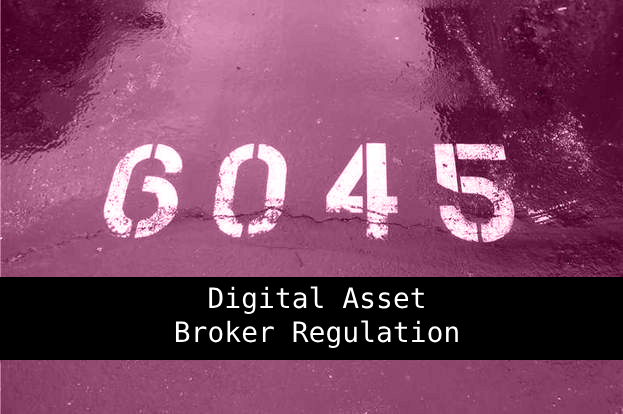When you make money from trading or selling cryptocurrencies like Bitcoin. The government wants its share, just like with any other kind of income. But sometimes, people try to hide how much they made to pay less tax. This is what we call “crypto tax fraud,” and it’s getting more attention from the IRS and the United States tax folks.
This tax season, individuals may face unexpected consequences if they have been lax in their reporting of crypto taxes. Furthermore, the IRS and the Department of Justice have joined forces to take direct action against crypto tax fraud. Marking a significant shift in their approach. Moreover, the IRS has been involved in the crypto industry for over a year. Intensifying their efforts to enforce reporting requirements for crypto earnings and compelling exchanges to disclose trading activities.
Experts in the field are nodding in agreement, seeing this move as a significant step forward. It shows the IRS isn’t just tagging along on other crime investigations but is actively hunting down crypto tax slips. If history teaches us anything, it’s that folks trying to skirt the law usually end up in hot water with their taxes, too.
Key Points:
- IRS’s First Crypto Tax Charge: This marks a significant move by the IRS against crypto tax fraud.
- Frank Richard Ahlgren III’s Case: Accused of not reporting $4 million in Bitcoin sales, highlighting the seriousness of the IRS’s crackdown.
- A Warning Sign: This action warns crypto users that the IRS is closely watching and ready to act against tax fraud.
- Increased IRS Focus on Crypto: The IRS has been making rules clearer and asking crypto exchanges for more information to fight tax fraud.
- Technical Challenges: Catching tax fraud in crypto is hard and needs lots of tech expertise, something the IRS has been working on.
The First Big Crypto Tax Fraud Case
Recently, a man from Austin(Texas), got into big trouble for not telling the IRS about $4 million. He made from selling Bitcoin in 2017 and 2019. This was a landmark case because it was the first time someone was charged just for hiding their crypto money from their tax return.
This is a first for the IRS, sending a strong message that they’re serious about catching tax mistakes in the crypto world. They’ve been getting more involved in crypto. Making rules clearer and saying that trading places have to share information about who’s buying and selling.
Why the IRS is Watching Crypto Closely
The IRS isn’t new to keeping an eye on crypto; however, they’ve been doing it for over a year. Additionally, they’ve been making rules clearer for things like crypto staking and how crypto exchanges should report sales to help people understand and follow the law. Furthermore, with this recent case, they’re sending a strong message. In conclusion, they’re serious about catching people who try to cheat on their crypto taxes.
The Reasons the IRS is Keeping an Eye on Crypto Transactions
Catching people who don’t report their crypto earnings is tough. The IRS needs a lot of tech know-how because tracking which cryptocurrencies were sold, when, and for how much can be complicated. Plus, some people still believe they can hide their crypto transactions from the government, but that’s not true.
The IRS is Getting Smarter About Crypto
To get better at understanding and tracking crypto transactions, the IRS is bringing in experts from the crypto industry. This move shows they’re committed to catching up with the latest tech to make sure everyone pays their fair share of taxes.
Figuring out crypto tax fraud is not easy.
Imagine you buy digital money, like Bitcoin, many times and then sell parts of it later. It’s tough to keep track of which pieces you sold and when you bought them. This information is crucial to know how much you originally paid for them. Without knowing this, it’s hard to figure out the profit you need to report for taxes.
Some people try to avoid paying taxes they owe on crypto, but they don’t always know the best ways to do it.
Many think that the government can’t track digital money transactions. Shehan Chandrasekera from CoinTracker says lots of folks believe digital money is secret, but it’s not.
The government said recently it’s hiring two experts from the digital money world—Sulolit “Raj” Mukherjee. Who used to work at Binance.US and Consensys, and Seth Wilks from TaxBit. This shows they’re getting serious about understanding and regulating digital money better.
Kell Canty, the boss at Ledgible, mentioned that having people who’ve worked inside the digital money industry is invaluable.
Gaurav Mehta, the founder of Catax – Simple Crypto Taxes, points out how important it is that the IRS has made its first direct charge for crypto tax fraud. This event shows a big change in how cryptocurrency is regulated, proving that the IRS is now more able and focused on making sure tax rules are followed in the world of digital currencies.
Mehta highlighted, “This major step by the IRS in bringing a specific case of crypto tax fraud is a big deal in the world of cryptocurrency regulation. It shows that the IRS is getting better and more dedicated to applying tax rules in the digital currency world. It’s also a clear warning to everyone using crypto that following tax rules is essential.
What This Means for the Future
If the Texas case goes to trial, it could set a precedent. It would mean explaining to a jury how crypto works, which isn’t easy. This case could be just the beginning, with more crackdowns on crypto tax fraud expected in the future.
A Sign of Things to Come: The IRS’s successful charge may pave the way for more investigations and charges in the future. Crypto traders should see this as a motivator to ensure they’re reporting their transactions accurately.
Educating the Jury: If cases like Ahlgren’s go to trial, a significant part of the prosecution’s challenge will be explaining how cryptocurrencies work to a jury. This educational hurdle is high but not insurmountable.
The Future of Battling Crypto Tax Fraud
- Fuller mentions that explaining how crypto works to the jury will be a big challenge if Ahlgren’s case goes to trial. The jury needs to understand crypto well enough to make a fair decision.
- This trial could set an example for others, hinting at more similar legal actions ahead. Fuller notes that it’s new for juries to handle crypto cases, showing there’s much to learn.
- Tax experts are keeping an eye out for more cases like this. They believe the IRS is getting more serious about finding and stopping tax mistakes or cheats in crypto, as mentioned by Zarlenga.
- Zarlenga believes Ahlgren’s case is just the start. The IRS thinks many people are not reporting their crypto earnings correctly. Also, more efforts to uncover these cases are expected.
Stay on the Right Side in the Law of the IRS
The takeaway is straightforward: if you’re earning money through cryptocurrencies. The IRS expects you to declare it, just like you would with any other type of income. Attempting to conceal your earnings can lead to serious issues, potentially even legal consequences. It’s much wiser to be upfront and pay your taxes accurately to steer clear of the pitfalls associated with crypto tax fraud.
FAQs (Frequently Asked Questions)
Crypto tax fraud occurs when someone doesn’t report their earnings from buying or selling cryptocurrencies, like Bitcoin, to the IRS. This can include hiding how much they made to pay less in taxes.
The IRS, along with the Department of Justice, has started taking direct action against individuals not reporting their crypto transactions accurately. They’re also enforcing reporting requirements more strictly and making sure crypto exchanges share transaction details.
If you’ve been lax in reporting your crypto earnings, you might face unexpected consequences, including potential legal action. It’s important to report all crypto transactions accurately to avoid issues with the IRS.
Yes, despite common misconceptions, the government has ways to track crypto transactions. The IRS is hiring experts from the crypto industry to enhance their ability to track and understand digital currency transactions.
To stay compliant, report all your crypto transactions accurately on your tax return, just like any other income. If you’re unsure about how to do this, consider using a crypto tax calculator like Catax or seeking advice from a tax professional who understands cryptocurrency.


